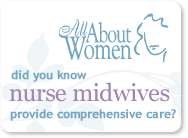About menopause
Menopause marks the end of the menstrual cycles and fertility. It also signifies a new chapter in life, unique to each individual with both challenges and rewards.
What is Menopause?
- Menopause occurs when the ovaries run out of viable eggs, stop producing most estrogen and progesterone hormones and, as a result, periods end. You are considered menopausal once you have not had a period for one year.
- Natural menopause occurs as a normal result of the aging process. The average age of menopause is 51 and the usual range is between the ages of 40 to 60. Menopause can occur earlier or later depending on your body, medical history, and genetics.
- Menopause can be “induced” by an external agent or event, such as removal of the ovaries (surgical menopause), chemotherapy or illness. Surgical menopause may trigger more severe symptoms due to the sudden loss of hormones.
- If menopause is reached prior to age 40, it is considered “premature.”
- Perimenopause is the period of time prior to menopause when symptoms are common, indicating that your body is in a period of transition.
Common symptoms of peri-menopause/menopause can include:
- Infertility
- Hot flashes/night sweats
- Interrupted sleep
- Changes in menses
- Vaginal dryness
- UTIs/Bladder infections
- Difficulty with concentration and short term memory
- Irritability and moodiness
- Weight gain
- dry skin, hair, or eyes
- Heart palpitations
- Headaches





